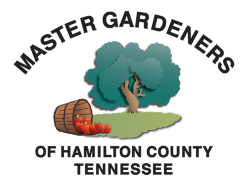As summer winds down to fall, it is time to clean up the garden and plan for next spring. Here are some tips from the University of Tennessee Institute of Agriculture to help you prepare your garden for the cold months ahead.
Shrubs & Trees
- Work on a landscape plan for fall planting of trees and shrubs. Most of the planting should wait until late October and November, but supplies will be at their peak in garden centers.
- Fertilize roses one last time.
- Prune to remove any diseased and dead rose canes. Look for signs of Rose Rosette Disease & follow UT disposal guidelines if needed.
Perennials, Annuals & Bulbs
- Plan spring bulb gardens and purchase bulbs. Most of the planting should wait until October, but supplies will be at their peak. Store them in a cool, dry location until you plant them.
- Divide, transplant and label perennials. As these plants die back in the fall, it is a great time to divide older plants. Complete divisions by mid October to allow the roots time to establish themselves before winter. Be sure to keep newly divided plants watered.
- Dig up tender bulbs this summer such as caladium, dahlia, gladiolus and put them into storage for next year’s use.
- Keep dead-heading plants, such as tithonia, zinnia, and cosmos, to ensure that they continue to flower.
- Collect seed from perennials and annuals.
- Remove and compost spent annuals and fallen leaves.
- Plant late season annuals like pansies, snapdragons and ornamental kale.
Fruits & Vegetables
- Add organic matter such as manure, compost and/or leaf mold to improve garden soils.
- Keep harvesting herbs, especially tender herbs like basil. Make pesto and freeze it, or put the basil in sealed plastic bags in the freezer.
- Keep picking warm-season crops. Canning, freezing and drying are all options for preservation.
- Continue planting cool season crops including leaf lettuce, spinach, cabbage, broccoli, Swiss chard, parsley, and radishes.
- Remove and dispose of any diseased plant materials properly. Do not add these to the compost pile. Many diseases will overwinter on infected leaves, stems and fruit. This is especially important with tomatoes.
Odds & Ends
- Take garden notes and /or photographs to plan future plantings.
- Bring house plants back indoors and inspect for insects.
- Begin to feed birds.


